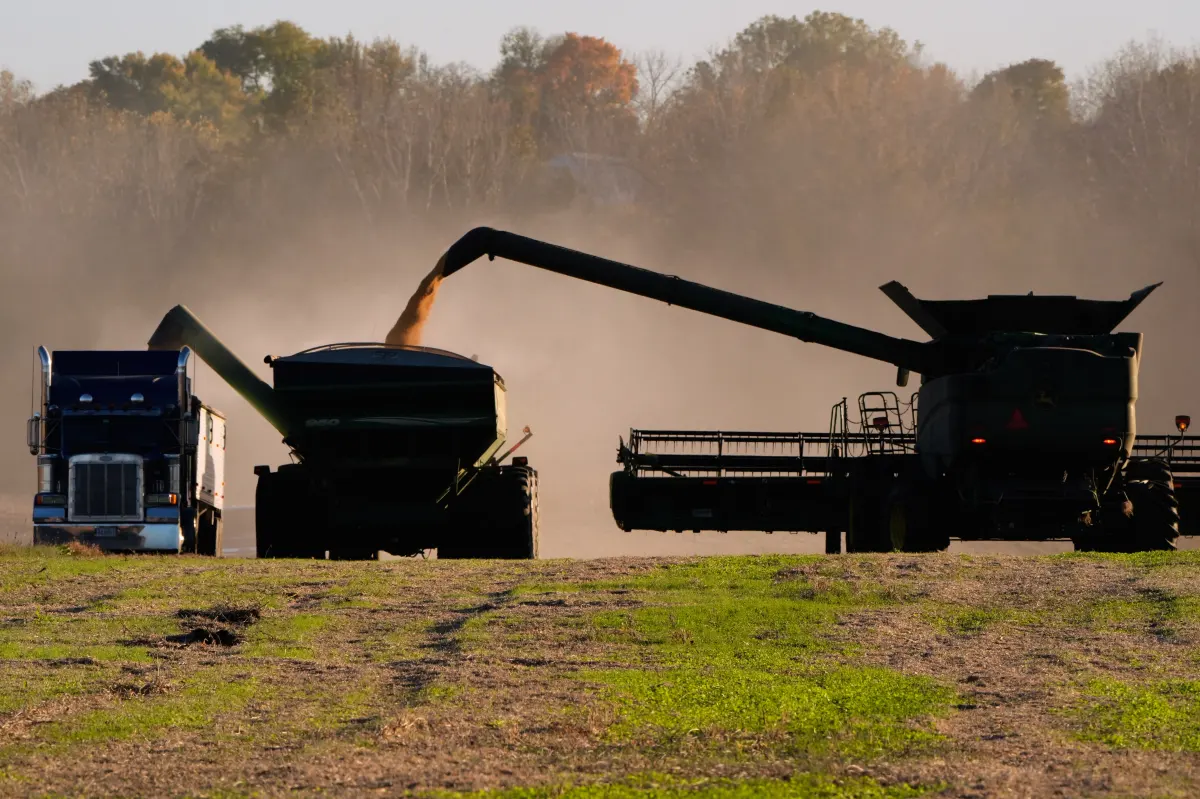
U.S. President Donald Trump says he is near an agreement with Chinese President Xi Jinping on greater and faster Chinese purchasing of U.S. farm products, predicting that the U.S. will be “pleasantly surprised.”
Newsweek contacted the Chinese government for comment.
Why It Matters
China is the world’s largest soybean importer and has long been the top buyer of U.S. soybeans, but its purchases ground to a near halt this year in retaliation for Trump’s tariffs on Chinese goods, stinging American farmers.
Trump announced a deal on soybeans—the most valuable U.S. agricultural export—on October 30, after talks with Xi in South Korea, to the relief of U.S. farmers.
Greater Chinese purchasing of U.S. farm produce will boost U.S. exports as well as support for Trump in rural America.
What To Know
“I spoke to President Xi about buying our farm products and he said he agreed with me,” Trump told reporters on Air Force One, referring to his Monday phone call with the Chinese leader.
Trump did not say specifically what Xi has agreed to, but mentioned more Chinese purchases of U.S. farm products.
“I asked him, ‘I’d like you to buy it a little faster. I’d like you to buy more,’ and he’s more or less agreed to do that. I think we will be pleasantly surprised by the actions of President Xi,” Trump said.
Treasury Secretary Scott Bessent said earlier that China would be buying a bounty of U.S. soybeans during the coming years. “The Chinese are right on schedule in terms of the cadence of their purchases. Over the next 3 1/2 years, we are going to see 87.5 million metric tons purchased by the Chinese—minimum—and they are right on schedule,” he told CNBC in an interview Tuesday.
The agreement Trump reached with Xi last month will bring total U.S. soybean exports to China this year to 18 million metric tons—down 32 percent from last year and marking the weakest year for American soy since 2018.
China has diversified its imports this year by increasing purchases of lower-cost soybeans from Brazil—its top supplier—and Argentina, and analysts have said China is unlikely to reverse that trend, even if relations with the U.S. stabilize.
The October deal included trade and tariff concessions from both sides. Trump agreed to delay his threatened 100 percent tariff on Chinese goods and reduce an existing duty on certain fentanyl precursor chemicals from 20 percent to 10 percent.
In return, China postponed for at least one year its planned export restrictions on rare earth elements, which are crucial for defense and high-tech industries.
What People Are Saying
Trump, referring to Xi, to reporters: “I think he’s going to very much surprise you with the upside.”
What Happens Next
Trump has confirmed that he will be visiting China in April and that Xi would later visit the U.S. Bessent said Xi would also attend a G20 meeting in the U.S. next year and that Trump might visit China for an Asia-Pacific Economic Cooperation summit.
